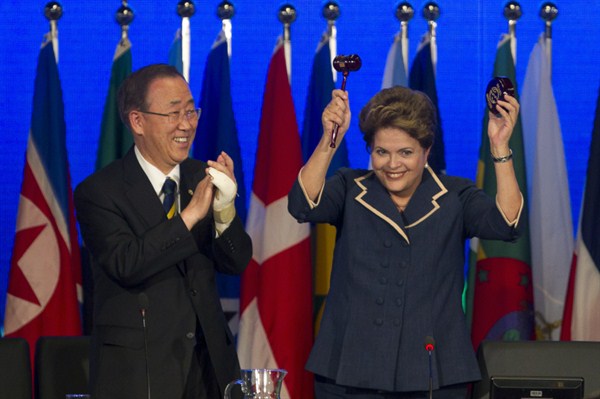In 2000, diplomats at the United Nations adopted eight development goals aimed at poverty reduction, education, nutrition, gender equality and safeguarding the environment in the world’s poorest countries. An impressive consortium of governments, multilateral organizations, philanthropic foundations, nongovernmental organizations and even celebrities answered the U.N.’s call to implement the so-called Millennium Development Goals (MDGs). In the past 15 years, partly due to the MDGs agenda, progress was made on a wide range of these development challenges: Extreme poverty was cut in half; deaths from malaria and tuberculosis were drastically reduced; millions of people gained access to anti-retroviral drugs to fight HIV/AIDS; and more boys and girls around the world were enrolled in school than ever before.
This year, the U.N. is developing the next iteration of global development goals, the Sustainable Development Goals (SDGs). Initiating the process in 2012 during a global development summit in Rio de Janeiro, an Open Working Group was charged with devising a suggested set of goals to guide negotiations at the General Assembly prior to the forthcoming adoption of the SDGs in September 2015. The Open Working Group reported back to the U.N. last July, and negotiations are now underway.
There are interesting new dynamics in the SDGs that can be discerned from the current draft. Greater emphasis is placed on the role of security in achieving global development. This provides for an opportunity to engage defense and security actors more robustly and to form interesting and mutually beneficial partnerships across traditional divides.

